Firm says iPod growth waning, Mac share improving
A survey conducted by Cowen & Co. indicates that despite a perceived drop in demand for personal computers over the next 12-18 months, Mac share is improving, especially amongst prospective buyers. Meanwhile, the same survey hints that Apple's iPod market growth remains strong, but could be nearing its peak.
Mac Mind/Market Share
"Specifically, compared with our most recent survey in December, our newest survey documents positive momentum for Apple's plan-to-buy market share among [the 22.7 percent of] respondents who indicate they have 'definite' plans to buy system(s)," analyst Richard Chu wrote in a research note recapping the the survey.
Of those respondents who said they definitely planned to buy a computer in the next 12-18 months, 7.8 percent said they planned to buy a Mac. This compares to 7.0 percent in December and 6.1 percent in October. Along the same lines, HP gained ground from 17.4 percent in October to 18.4 percent in April, while Dell slipped from 37.8 percent to 33.8 percent. "Gateway/eMachines mindshare continued to slip significantly with Sony and IBM/Lenovo more or less holding ground," Chu added.
The analyst pointed out that Apple's share of planned notebook purchases has grown significantly since the company introduced its first Intel-based Mac notebooks. "As summarized below, among 'definites', Mac share of planned notebook buys increased to nearly 10 percent in this survey, up from 7.5 percent in December and 7.7 percent in October," he wrote. "The latter two surveyed pre- the launch of the first of the Intel based notebooks."
In contrast, the shift in planned desktop shares among "definites" was far less notable, with Mac desktops slipping a bit to 6.2 percent from 6.6 percent in December, Chu said. "Notably, among respondents who are 'considering' but have not yet decided on PC purchases, the survey suggests a positive inflection for Apple share of mind (reversing the deterioration posted in the December survey), for desktops as well as notebooks," he wrote. "We believe that this is attributable in part to a positive launch of Intel based Macs."
More importantly, the analyst said, the survey suggests Macs are gaining ground in Windows-centric households. "The current survey indicates Apple is gaining share of planned purchases in so-called Windows-centric households," the analyst wrote, referencing a 3 percent rise on this data point since October.
The Halo Effect
Based on results, the survey also offered further documentation of the so-called "iPod Halo Effect," which is the notion that strong sales of (and positive consumer experiences with) the iPod will translate into stronger Mac sales.
"Survey respondents' planned share of buys for Apple Macs at Windows centric households (recall the mean was 5.8 percent, among definites) is measurably higher among iPod-owning households (9.0 percent) than for those without iPods (2.8 percent)," Chu wrote. However, the analyst believes the Halo Effect may become less relevant as iPod pervasion increases dramatically in the future.
Consumers Signing up for Boot Camp?
Surprisingly, the majority of respondents to Cowen's April survey were not aware of Apple's ongoing transition to Intel processors, with just under 23 percent indicating that they heard of the change.
"This is higher than the 16 percent ratio registered in our July 2005 survey (just after the announcement) but not that much so, considering the passage of more than 10 months," Chu told clients.
Still, a substantially higher percentage of respondents (8 percent) indicated that they were more likely to buy a Mac over the next 12 to 18 months as a result of the transition, suggesting that the fundamental residual impact of the platform shift is a positive one.
Additionally, 20 percent of those surveyed said Apple's new Boot Camp software makes them more likely to buy an
Mac in the next 12-18 months. Among respondents with 'definite' plans to buy a computer in that timeframe, an even higher 42 percent said Boot Camp makes them 'more likely' to purchase a Mac.
"Thus, we think the survey provides definite empirical evidence that this dual OS implied by Boot Camp can only be viewed as a strategic positive for Apple," the analyst told clients. "Whether Boot Camp in fact delivers on this implied virtualization in final production remains to be seen."
Is iPod Growth Finally Stabilizing?
Since Cowen's October survey, respondents who say they own a digital music player increase from 37 to 42 percent, with iPod penetration rising from 19 to 25 percent.
"Since iPod households now own an average of 1.28 units per household, the actual iPod diffusion rate (total owned units per overall households) is now 31 percent in this survey sample, up 9 percent-points from October 2005, a dramatic step up," Chu wrote. Still, with the dramatic growth of digital music players over the past 24 months, the analyst worries that growth in the diffusion rate may have peaked.
"Said alternatively, this survey raises the possibility that digital music player purchase activity over the next 12-18 months may decline from the breakneck pace of the past year," he wrote.
Specifically, Chu said that less than 12 percent of respondents in this survey plan to buy a new player in the next 1 to 1.5 years, down from 15.5 percent in the October survey and 14.7 percent in the July 2005 survey. "True, another 24 percent of respondents indicate that they are 'considering' buying; but that is also lower than the 28 percent who put themselves in that category six months ago," he wrote. "Viewed alternatively, 64 percent of respondents have 'no plans' to buy, up from 57 and 56 percent in the last two surveys, respectively."
In general, the survey indicates that the iPod will likely continue to maintain a very substantial share lead over all other competitors for the foreseeable future. Additionally, the average iPod owner plans to spend about $72 over the next twelve months on digital downloads, well above the overall average of all digital music player owners combined. Likewise, the survey indicated that the average iPod owner expects to spend $109 over the next 12 months in peripherals, which again is substantially higher than spending from the non iPod music player customers.
Other notable statistics from the Cowen survey include: only 2.9 percent of respondents said they would replace their digital music player with a cell phone that could offer similar capabilities; and 52 percent said they had no interest in digital music players with expanded video capabilities.
While Cowen & Co.'s survey indicated that Apple's Intel transition challenges are more fully discounted than in the past, it did suggest potential for significant slowing in iPod growth. As a result, the firm is maintaining a "Neutral" rating on shares of the company's stock.
 Katie Marsal
Katie Marsal









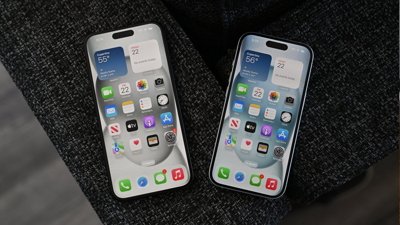
 Malcolm Owen
Malcolm Owen
 Amber Neely
Amber Neely
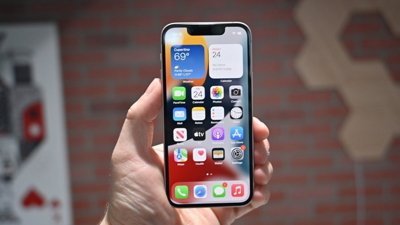
 William Gallagher
William Gallagher
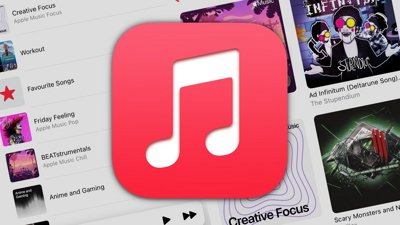
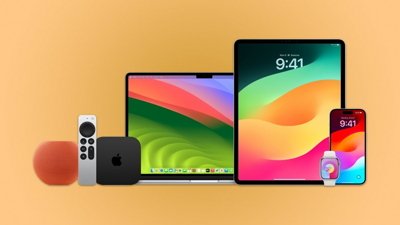
 Andrew Orr
Andrew Orr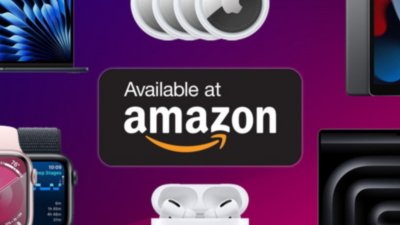
 Christine McKee
Christine McKee







